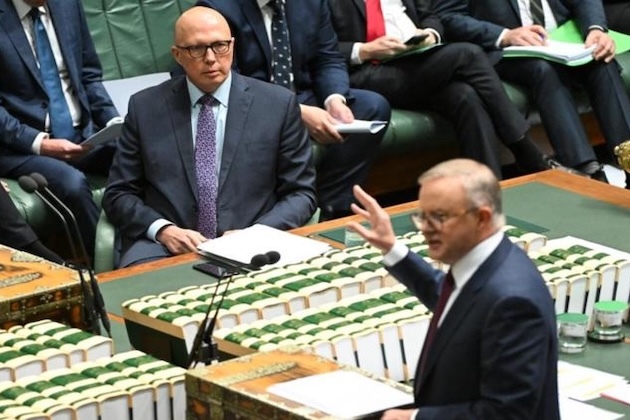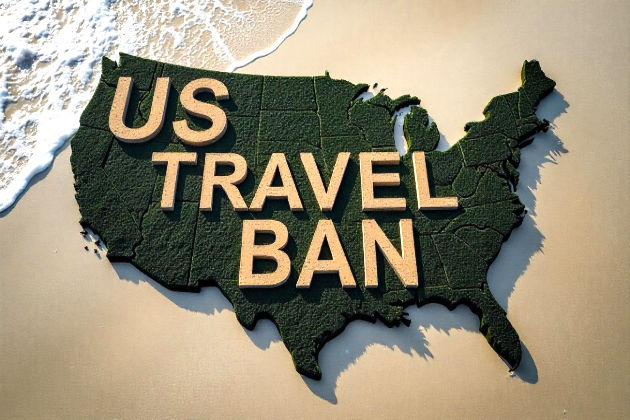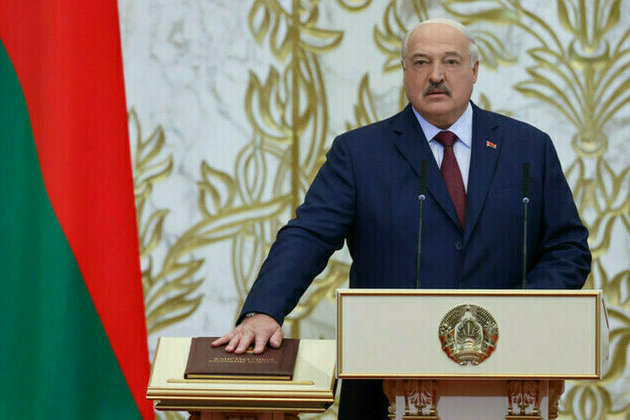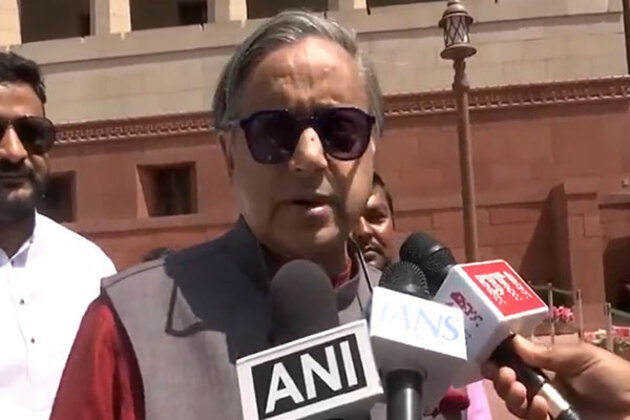World Insights: "America First" always -- mask on U.S. foreign policy lifted
Xinhua
25 Mar 2025, 17:45 GMT+10
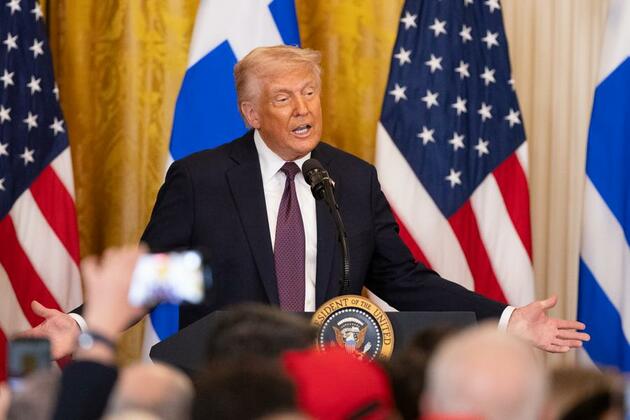
While the temptation is to think of Trump as an exogenous shock to U.S. democracy, look closer: It is not a president taking a hammer to a hitherto stable political order, but "a history of the erosion of norms that paved the way for him," said Guardian columnist Nesrine Malik.
BEIJING, March 25 (Xinhua) -- After he was elected the new Canadian prime minister, Mark Carney struck a defiant tone against the United States, accusing Washington of coveting Canada's resources and the country as a whole. His remarks underscored a broader reckoning with Washington's relentless pursuit of self-interest.
Under the current U.S. administration, trade conflicts, unilateral withdrawals from international organizations and coercion of allies are drawing widespread condemnation. Yet, a closer look reveals that these actions were neither unprecedented nor anomalous.
Rather, they were the latest expression of a doctrine deeply ingrained in U.S. foreign policy: "America First" -- a creed that has shaped Washington's global approach for decades, often masked by diplomatic rhetoric.
CONTINUITY OF U.S. FOREIGN POLICY STRATEGY
U.S. President Donald Trump has dramatically shifted the direction of U.S. foreign policy, the Wall Street Journal recently commented. However, such claims have ignored history. The Trump administration's foreign policies, steeped in isolationism and protectionism, are not aberrations but extensions of historical U.S. strategies.
About two months into taking office, the current U.S. administration has announced its withdrawal from the Paris Agreement on climate change, the World Health Organization, and the United Nations (UN) Human Rights Council, and ordered a review of its membership in the UN Educational, Scientific and Cultural Organization (UNESCO).
Such withdrawal from international organizations follows a long tradition. In December 1984, the Reagan administration withdrew from UNESCO because "the group refused to adjust its policies to meet American and other Western complaints."
In November 2011, the Obama administration cut off funding for the UN cultural agency, after its member countries defied a U.S. warning and approved a Palestinian bid for full membership in the body.
These actions represent the approach of embracing international organizations and rules when they align with U.S. interests and discarding them when they do not. The current U.S. administration is no different in this regard.
The U.S. administration also announced a 25-percent tariff on all steel and aluminum imports to the United States, imposed additional tariffs on goods imported from Canada, Mexico and China, and demanded "reciprocal treatment" with each foreign trade partner.
This trading strategy "reflects a worldview rooted in 19th-century mercantilism, emphasizing protectionism and an aggressive use of tariffs," said the Brookings Institution, a think tank. "The resurgence of protectionism in an interconnected world poses a slew of economic, strategic, and institutional risks."
Meanwhile, the Trump administration's unscrupulous tactics in securing strategic mineral resources have also been evident in the past, with the Democratic Republic of the Congo (DRC) being one of the victims.
In the 1960s, the United States, viewing then-DRC Prime Minister Patrice Lumumba as pro-Soviet and fearing the country's abundant mineral resources might fall into Soviet hands, orchestrated a covert operation to overthrow him. U.S. media later reported that Lumumba's assassination was directly linked to the Central Intelligence Agency.
Even the Trump administration's interest in acquiring Greenland is not new. In 1946, the Truman administration proposed buying the island outright for 100 million dollars in gold and the rights to a patch of Alaskan oil.
Then-U.S. Secretary of State James Byrnes made the offer to visiting Danish Foreign Minister Gustav Rasmussen in New York on Dec. 14, 1946, according to a telegram from Byrnes to the U.S. Legation in Copenhagen.
After discussing other security arrangements for Greenland, Byrnes said he told Rasmussen that perhaps an outright sale to the United States "would be the most clean-cut and satisfactory."
"The United States has a long record, under much more gentlemanly presidents, of breaking international law, insulting international institutions and embarking on unilateral campaigns licensed by its superpower status," The Guardian commented.
"AMERICA FIRST" ALWAYS
The current administration's overt embrace of "America First" is less an innovation than a symptom of America's declining unipolar dominance. As its global influence wanes, Washington resorts to brute-force tactics --tariffs, aid blackmail and militarism -- to cling to hegemony, observers have said.
"In my 27 years of experience as a diplomat, U.S. foreign policy has always been 'America First,' and no matter who the president is, U.S. diplomacy has never been about 'America Second,'" said Kunihiko Miyake, a former Japanese diplomat and current research director at the Canon Institute for Global Studies.
"When Americans are prosperous, they tend to emphasize universal values like freedom and democracy. However, when they face challenges and difficult times, their true sentiments -- what could be described as "America First" -- come to the forefront," said Miyake.
The adoption of "America First" as the Trump administration's foreign policy doctrine is closely linked to the gradual decline in the United States' comprehensive national power and the widespread rise in anxiety among both the American elite and the general public, said Yuan Zheng, deputy director of the Institute of American Studies at the Chinese Academy of Social Sciences.
Wang Jisi, a professor at the School of International Studies of Peking University, believes the American democratic system, rooted in extreme egoistic values, provides "approval and authorization" for its unilateral and hegemonic actions.
For instance, the United States frequently exercises long-arm jurisdiction and imposes international sanctions based on its domestic laws, and even goes as far as launching wars, said Wang.
While the temptation is to think of Trump as an exogenous shock to U.S. democracy, look closer: It is not a president taking a hammer to a hitherto stable political order, but "a history of the erosion of norms that paved the way for him," said Guardian columnist Nesrine Malik.
 Share
Share
 Tweet
Tweet
 Share
Share
 Flip
Flip
 Email
Email
Watch latest videos
Subscribe and Follow
Get a daily dose of Baton Rouge Post news through our daily email, its complimentary and keeps you fully up to date with world and business news as well.
News RELEASES
Publish news of your business, community or sports group, personnel appointments, major event and more by submitting a news release to Baton Rouge Post.
More InformationBusiness
SectionJ&J to invest $55 billion in US as trade tensions rise
NEW BRUNSWICK, New Jersey: Johnson & Johnson is ramping up its U.S. investments even as global trade tensions resurface with plans...
UAE unveils $1.4 trillion US investment plan over next decade
WASHINGTON, D.C./DUBAI: The United Arab Emirates is significantly expanding its financial footprint in the U.S. with a new investment...
Wall Street jumps sharply on easing trade war tensions
NEW YORK, New York - Investors bought up stocks on U.S. markets Monday after President Donald Trump indicated he may pull back on some...
Boston Celtics sold for $6.1 billion to private equity mogul Chisholm
BOSTON, Massachusetts: Private equity investor William Chisholm has agreed to buy the Boston Celtics in a record-breaking deal worth...
US mortgage rates rise for second week, adding pressure on buyers
WASHINGTON, D.C.: The cost of borrowing for a home in the U.S. ticked up again this week, marking the second straight increase as homebuyers...
Apple TV+ bleeds $1 billion annually in costly streaming push
CUPERTINO, CALIFORNIA: Apple's ambitious foray into streaming is proving costly, with the company reportedly losing over US$1 billion...
World
SectionALP in front ahead of upcoming election, but Coalition gaining ground
SYDNEY, Australia - A recent Roy Morgan survey indicates that if a federal election were held today, the Australian Labor Party (ALP)...
US weighs broad travel ban covering dozens of countries
WASHINGTON, D.C.: The Trump administration is considering strict new travel restrictions for citizens of dozens of countries, according...
World Insights: "America First" always -- mask on U.S. foreign policy lifted
U.S. President Donald Trump attends an event celebrating the Greek Independence Day at the White House in Washington, D.C., the United...
Pakistan: BYC accuses police of blocking Sammi Deen Baloch's release despite court's order
Karachi [Pakistan], March 25 (ANI): Baloch Yakjehti Committee (BYC) has accused police of blocking Baloch activist Sammi Deen Baloch's...
Lukashenko sworn in as president of Belarus for seventh time
The inauguration ceremony took place at the Minsk Palace of Independence, extending his rule to 2030 Belarusian President Alexander...
Hoping good constructive discussion with sensible outcomes, says Congress MP Shashi Tharoor ahead of India-US trade discussions
New Delhi [India], March 25 (ANI): Congress MP Shashi Tharoor has expressed optimism ahead of the visit of an American delegation which...







